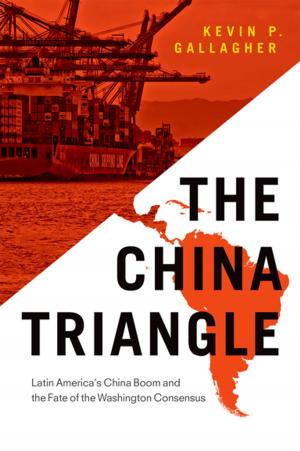Britannia's Embrace
Modern Humanitarianism and the Imperial Origins of Refugee Relief
Nonfiction, History, Modern, 19th Century, British, Social & Cultural Studies, Political Science| Author: | Caroline Shaw | ISBN: | 9780190201005 |
| Publisher: | Oxford University Press | Publication: | September 18, 2015 |
| Imprint: | Oxford University Press | Language: | English |
| Author: | Caroline Shaw |
| ISBN: | 9780190201005 |
| Publisher: | Oxford University Press |
| Publication: | September 18, 2015 |
| Imprint: | Oxford University Press |
| Language: | English |
On the eve of the American Revolution, the refugee was, according to British tradition, a Protestant who sought shelter from continental persecution. By the turn of the twentieth century, however, British refuge would be celebrated internationally as being open to all persecuted foreigners. Britain had become a haven for fugitives as diverse as Karl Marx and Louis Napoleon, Simón Bolívar and Frederick Douglass. How and why did the refugee category expand? How, in a period when no law forbade foreigners entry to Britain, did the refugee emerge as a category for humanitarian and political action? Why did the plight of these particular foreigners become such a characteristically British concern? Current understandings about the origins of refuge have focused on the period after 1914. Britannia's Embrace offers the first historical analysis of the origins of this modern humanitarian norm in the long nineteenth century. At a time when Britons were reshaping their own political culture, this charitable endeavor became constitutive of what it meant to be liberal on the global stage. Like British anti-slavery, its sister movement, campaigning on behalf of foreign refugees seemed to give purpose to the growing empire and the resources of empire gave it greater strength. By the dawn of the twentieth century, British efforts on behalf of persecuted foreigners declined precipitously, but its legacies in law and in modern humanitarian politics would be long-lasting. In telling this story, Britannia's Embrace puts refugee relief front and center in histories of human rights and international law and of studies of Britain in the world. In so doing, it describes the dynamic relationship between law, resources, and moral storytelling that remains critical to humanitarianism today.
On the eve of the American Revolution, the refugee was, according to British tradition, a Protestant who sought shelter from continental persecution. By the turn of the twentieth century, however, British refuge would be celebrated internationally as being open to all persecuted foreigners. Britain had become a haven for fugitives as diverse as Karl Marx and Louis Napoleon, Simón Bolívar and Frederick Douglass. How and why did the refugee category expand? How, in a period when no law forbade foreigners entry to Britain, did the refugee emerge as a category for humanitarian and political action? Why did the plight of these particular foreigners become such a characteristically British concern? Current understandings about the origins of refuge have focused on the period after 1914. Britannia's Embrace offers the first historical analysis of the origins of this modern humanitarian norm in the long nineteenth century. At a time when Britons were reshaping their own political culture, this charitable endeavor became constitutive of what it meant to be liberal on the global stage. Like British anti-slavery, its sister movement, campaigning on behalf of foreign refugees seemed to give purpose to the growing empire and the resources of empire gave it greater strength. By the dawn of the twentieth century, British efforts on behalf of persecuted foreigners declined precipitously, but its legacies in law and in modern humanitarian politics would be long-lasting. In telling this story, Britannia's Embrace puts refugee relief front and center in histories of human rights and international law and of studies of Britain in the world. In so doing, it describes the dynamic relationship between law, resources, and moral storytelling that remains critical to humanitarianism today.















